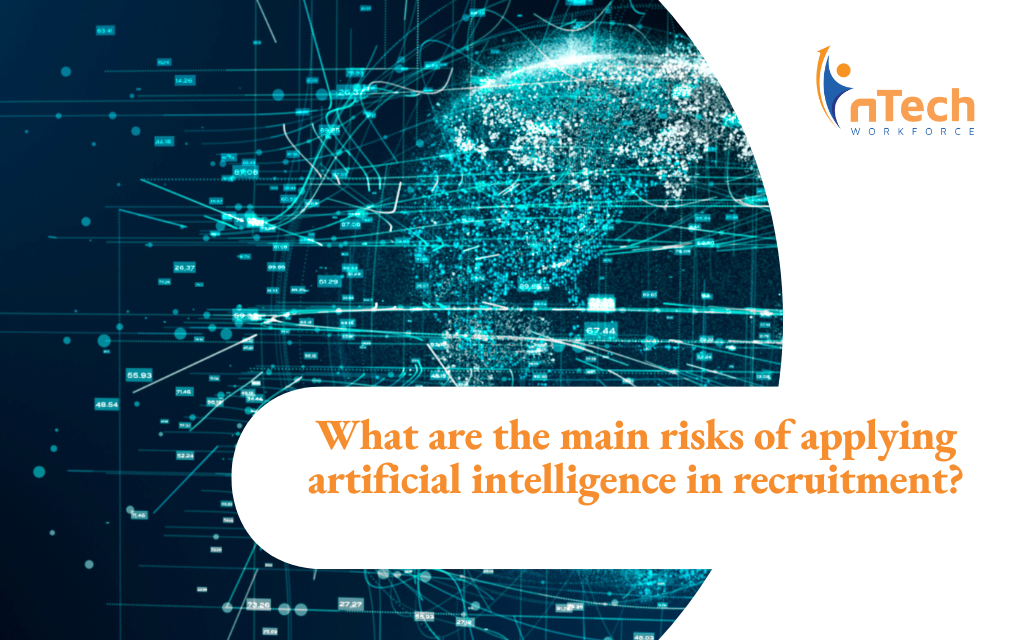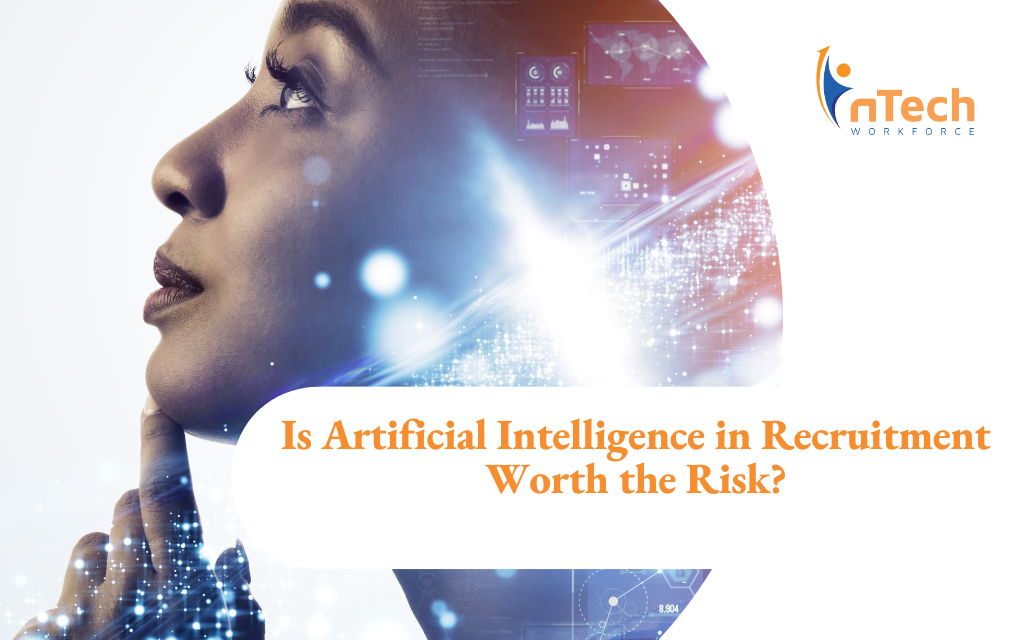Is Artificial Intelligence in Recruitment Worth the Risk?
AI can help streamline recruitment tasks. Indeed, early adopters of AI screening software report a 75% reduction in their cost per screen. However,...
2 min read
![]() nTech Workforce
:
May 12, 2023 6:05:10 PM
nTech Workforce
:
May 12, 2023 6:05:10 PM

Do you know about 99% of Fortune 500 companies utilize artificial intelligence (AI) tools in their hiring plans? That's true, and the numbers are expected to trend upward in the coming years. A study by The Sage Group shows that 56% of managers plan to use AI during recruitment over the next years. But do you know what the use of AI for recruitment purposes entails and the risks involved?
As an HR technology executive or corporate human resource manager, AI guarantees you a more accurate, faster, and cost-effective recruitment process. However, leveraging the latest technological innovations to create a seamless hiring process comes with potential legal risks.
The legal considerations related to the use of AI during recruitment are rooted in two main areas of law:
Data is necessary for an AI-powered recruitment tool to function properly. Thus, there is a risk of a data privacy breach. There is a strong feeling that there aren't strong security measures to protect biometric data.
Also, there is a rising concern that facial and voice analysis invades the applicant's privacy. AI recruitment is perceived as more of an invasion of privacy as it performs a detailed analysis of candidates that is not possible in a one-on-one interview.
The United States Equal Employment Opportunity Commission (EEOC) is concerned that AI-powered recruitment can lead to unintended discrimination. If you don't test the capabilities of the AI algorithm, there is a high likelihood that the results will be biased.
Think about automated selection. The tool may prioritize potential candidates who live within a specific zip code, such as those near the workplace. In such a case, those who live further away are disadvantaged.
Also, the tool may favor candidates with similar profiles, such as men and whites. Such an algorithm can disadvantage minority groups, such as women, Latino candidates, and African Americans.
The legal risks of using AI recruitment are overstated since they aren't supported by case law. Currently, the use of AI in recruitment is not yet regulated at the federal level.
The first law to try and regulate the use of AI in recruitment was passed by the state of Illinois in 2020. The Artificial Intelligence Video Interview Act seeks to protect job applicants if the employer intends to use artificial intelligence during video interviews.
Still, in 2020, ten US senators sent a letter to EEOC seeking clarification about the agency's oversight authority for hiring technologies. However, this letter was more of an inquiry and not case law.
The only law related to the use of AI tools during recruitment is the National Artificial Intelligence Initiative Act of 2020. However, even this law doesn't regulate the use of hiring technologies. Instead, it seeks to fund training and education programs for the US workforce to prepare them to interact with AI systems.
The use of artificial intelligence in the recruitment process is rapidly becoming a norm in most sectors. As you seek to reduce time and costs in the hiring process, you should be aware of potential risks. For help with all of your recruitment needs, contact nTech Workforce today.

AI can help streamline recruitment tasks. Indeed, early adopters of AI screening software report a 75% reduction in their cost per screen. However,...

In the ever-evolving world of recruitment and staffing, technology, namely AI, has become a pivotal player.

There’s no doubt that the global pandemic has had a significant impact on the world of recruitment, with working remotely becoming the new norm...